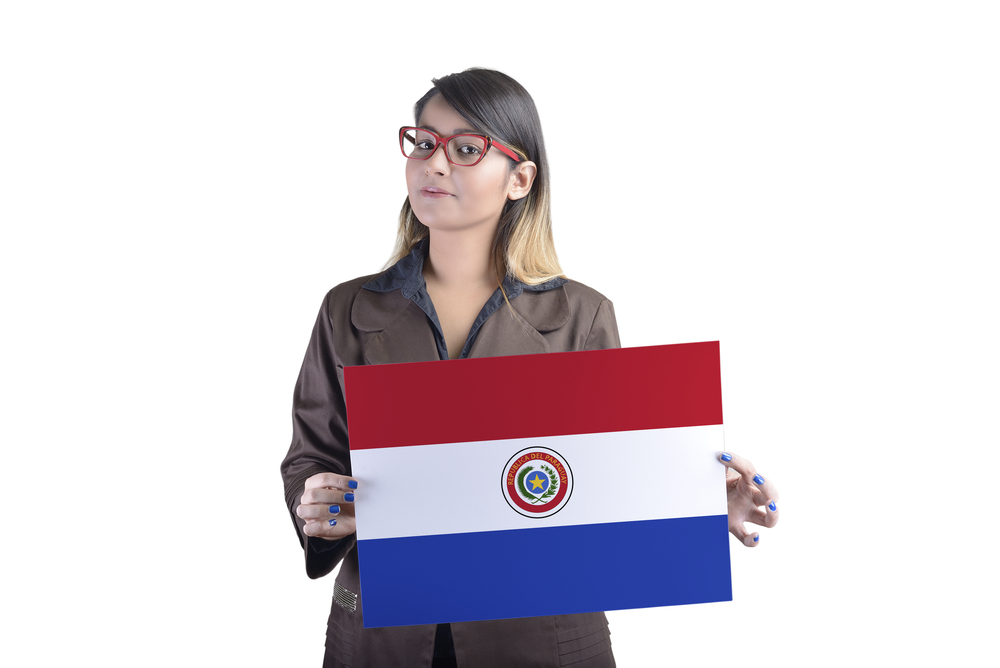Welcome to Feminism Around the World, a weekly feature here at TMS where we focus on women’s lives and feminist concerns … around the world. TMS is a US-based website, but we think it’s important to connect with women all over the globe to applaud successes, report injustices, and amplify the conversation around solutions to gender-based inequality. Because “Until we are all free, we are none of us free.” – Teresa
PARAGUAY: Government Launches Investigation Into Abuses Committed Against Young Girls During Stroessner Dictatorship
Paraguay was under the rule of “President” Alfredo Stroessner from 1954 to 1989. I put “president” in quotes, because the word President implies that people’s voices were somewhat heard and freely given when selecting a leader, but Stroessner’s regime was a straight up dictatorship. Sure, they went through the motions of “elections,” but shortly after leading an army coup to become president in the first place, he declared a “state of siege” for the country…that was renewed every ninety days until 1987.
Under the “state of siege,” Stroessner basically ruled by martial law for most of his tenure (with the support of the U.S. since he was anti-communist, and apparently human rights abuses committed by dictators are totally OK so long as they’re not being performed by communists? Hey, it was the 1970s. It was a crazy time!). This meant that dissenters were kidnapped, tortured and killed on the regular, the government was hugely corrupt, and in the midst of all that, as is usually the case in situations like these, women and girls suffered a special kind of dehumanization.
In the capital city of Asunción, young girls were always on the lookout for caperucita roja (“Little Red Riding Hood”), a red Chevrolet Custom 10 belonging to the Stroessner regime. It was often the last car dissenters would ever see. However it held a special threat for young, pretty girls walking alone, who would be snatched up into sex slavery.
As reported by Americas Quarterly:
“The word at school was that the caperucita roja would snatch young girls from the street,” Gilda Ferreira, a language teacher who grew up in the poor Asunción neighborhood of La Chacarita in the 1960s, told AQ. “The pretty ones had the most to fear.”
Many women of Ferreira’s generation remember hearing similar accounts. The existence of a pedophile ring operating at the highest reaches of Stroessner’s government was long rumored, and even the subject of an exposé by the Washington Post during the dictatorship’s heyday.”
Now, in 2016, the government is finally launching an investigation into the cases of women who’ve come forward alleging that they were young girls who were abducted and used in this way during Stroessner’s regime. Leading the charge is Rogelio Goiburú, director of reparations and historical memory at Paraguay’s Ministry of Justice, who is determined to pursue the cases of over 1,000 girls who, at the time, would’ve been between the ages of 12 and 14. They were taken from the streets of their poor countryside towns, delivered to houses all over Paraguay, and abused by senior members of Stroessner’s government.
As of right now, “only one victim, Julia Ozorio, had come forward to give her story. Two other witnesses have told investigators they saw abuses,” and many are skeptical that the probe will mean anything so long as there are still Stroessner supporters who “remain influential within parts of the ruling Colorado Party as well as Paraguay’s armed forces.” Still, it’s an important step to take, if only to acknowledge the abuses, which still remain taboo to even be mentioned.
This is but one of many instances of feminist action being taken in Latin America right now. Latinas have historically suffered a great deal at the hands of the machismo in their own cultures, but it seems that the 21st Century has finally caught up to these countries, and the women there have gotten to the boiling point and are not going to take it anymore. Already in this very column, I’ve talked about a feminist comics writer in Brazil, trans people in Bolivia finally getting government ID cards with their correct genders, and the #NiUnaMenos protests in Argentina and elsewhere that stand against violence against women.
Meanwhile, TMS reader Oralia Torres (@oraleia on Twitter) of Nuevo León, Mexico, reports that “Also, my state, Nuevo León, has finally issued an “alerta de género” (gender alert), which is a way for the State to recognize that there is gendered violence and femicides and make a commitment to find justice and prevent more gendered crimes to happen.” This is in addition to protests in Mexico and other Latin American countries, as well as governmental offices all over Latin America working to raise awareness about gendered violence.
It’s heartening to know that the entire continent seems to finally be waking up. There’s so much work to be done, but both women and men are increasingly willing to join the fight. That is wonderful news.
NEWS FROM ELSEWHERE
MOROCCO: “Television Station Faces Major Backlash Over Makeup Tutorial for Hiding Domestic Violence” (Mediaite, 11/26/16)
THE NETHERLANDS: “Amsterdam looks to ban hissing, rude gestures and wolf-whistles on the street” (Dutch News, 11/29/16)
If you have a story you think should be included in a future Feminism Around the World column, please email it to [email protected] with “Feminism Around the World” in the subject line. Please note that this column is exclusively reserved for stories related to women in countries outside the U.S. Please send current stories that have been posted/printed within a week of the previous FATW column. Thank you, tipsters!
Want more stories like this? Become a subscriber and support the site!
—The Mary Sue has a strict comment policy that forbids, but is not limited to, personal insults toward anyone, hate speech, and trolling.—
Follow The Mary Sue on Twitter, Facebook, Tumblr, Pinterest, & Google+.









Published: Nov 30, 2016 05:47 pm